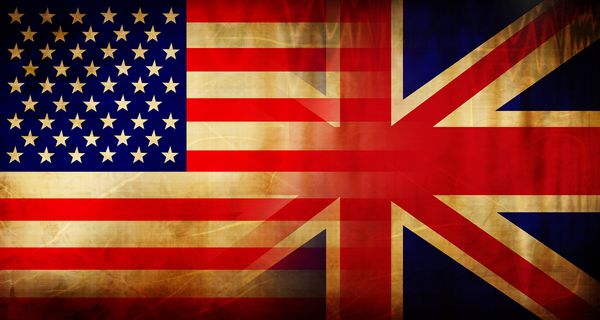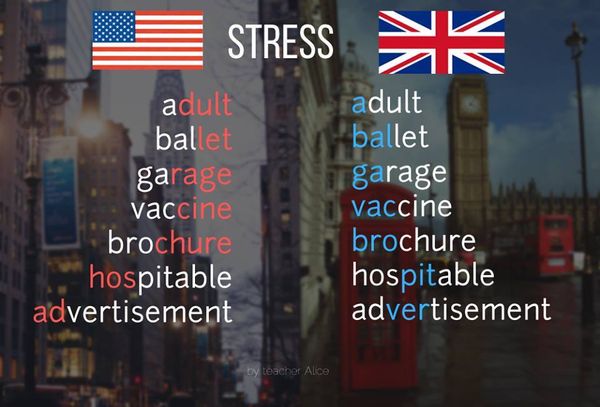5 Differences Between American and British English

Written by guest contributor Anna Gale
While both versions of the language have the same roots, the last four centuries have produced some pretty strong variations in the English language that make American English and British English seem worlds apart. While Americans in Britain may initially only notice French fries being referred to as "chips," and the terms "cheeky," "knackered," and "brilliant" being used just about everywhere, the two dialects actually differ in an abundance of ways.
Depending on the region, American English (AmE) and British English (BrE) have large differences in spelling, pronunciation, vocabulary, punctuation, and tenses. Below are just a few.
undefined
1. Spelling

Many differences between American and British English stem from Latin-derived spellings and Greek-derived spellings. Those differences are seen in the unstressed endings to certain words.
Latin-derived spellings:
| American English | British English |
| :---------- | :---------- |
| Color | Colour |
| Behavior | Behaviour |
| Honor | Honour |
| Neighbor | Neighbour |
Greek-derived spellings:
| American English | British English |
| :---------- | :---------- |
| Organize | Organise |
| Dialogue | Dialog |
| Analyze | Analyse |
| Realize | Realise |
2. Pronunciation
There are some words that are spelled the same in both dialects, but that are pronounced with a distinct stress on different syllables. The words "controversy" and "schedule" are two examples. The word "aluminium" (BrE) in Britain and the English colonies has a curious extra letter and syllable added, to make its pronunciation "alu-MIN-EE-um." Then there are words that have both different spellings and different pronunciations, like defense (AmE) and defence (BrE), or axe (AmE) and ax (BrE).

3. Vocabulary
Some words in one dialect may have a completely different meaning in the other, or vice versa. A "boot" to an American is a pair of shoes, but to a Brit, the "boot" refers to the trunk of a car, as in, "just getting my luggage out of the boot." So to keep your miscommunications to a minimum, here are some helpful translations.
| American English | British English |
| :---------- | :---------- |
| Cookie | Biscuit |
| Pharmacy | Chemist |
| French Fries | Chips |
| Highway | Carriageway |
| Trash | Dustbin |
4. Phrasing
Phrases such as "a week today," or "Tuesday week," (referring to a week in the future) are common in Britain but are often confusing to the American ear. "Fortnight Sunday," for example, refers to two weeks following this Friday.
In the UK, dates are usually written differently in the short (numerical) form. Valentine's Day 2015, for example, is written as 14/2/15, with the day preceding the month.

A photo of a carriageway or a highway, depending on where you’re from. With all due respect to British culture, I doubt a carriage can ride along these fast lanes.
5. Punctuation
The most common form of differing punctuation is seen through titles. In American English titles such as Dr., Mrs., Ms., and Mr. are written with the use of a period, while the British version might omit the period altogether.
undefined
All in all, you’ll find that the written forms of American and British English vary surprisingly little, with the most noticeable differences being in their spoken forms. Winston Churchill once said: “England and America are two countries separated by a common language.” It was true then, and is true now, but perhaps we can make the gap a little bit smaller. Or, as the Brits might say, "make it teeny."
About the author:
Marcella is Verbling's Director of Community and Content. She not only works at Verbling, she learns on Verbling as well. Marcella is currently learning Italian.
November 25, 2015



